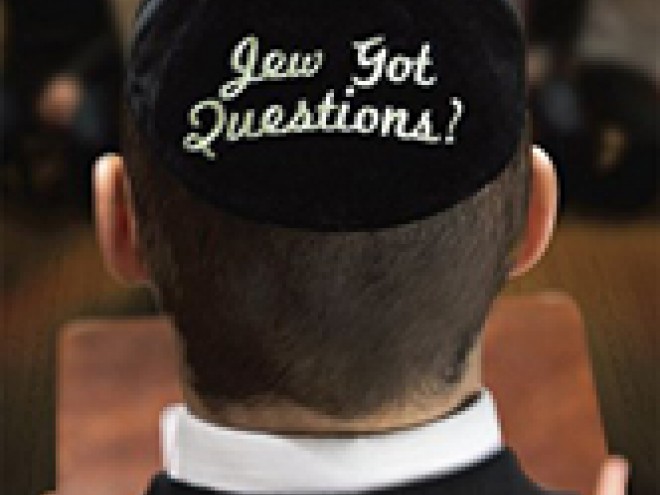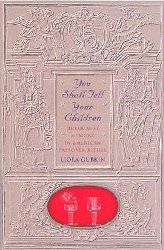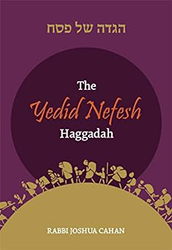Earlier this week, Rabbi Lawrence Hajioff wrote about how he approaches challenging queries and the benefits of crowdfunding one’s book. His book, Jew Got Questions?, is now available. He has been blogging here all week for Jewish Book Council’s Visiting Scribe series.
 One of the first Jewish books I remember reading as a child belonged to my sister; it was the Jewish Book of Why by Alfred Kolatch. Its easy-to-read Q&A style kept me interested enough till the next question. When I began to formulate the idea for my book, I felt the short answer formula was the way to go. I reasoned if people didn’t have patience to read a long answer thirty years ago, how much more so today!
One of the first Jewish books I remember reading as a child belonged to my sister; it was the Jewish Book of Why by Alfred Kolatch. Its easy-to-read Q&A style kept me interested enough till the next question. When I began to formulate the idea for my book, I felt the short answer formula was the way to go. I reasoned if people didn’t have patience to read a long answer thirty years ago, how much more so today!
As I mentioned in my previous post, writing ‘short’ answers to ‘big’ questions carried with it the danger of trivializing questions that need a longer more nuanced response. But the ‘Kolatch way’ was well received, so why wouldn’t mine be?
The more I thought about, the more I realized how much of an important role questions play in Jewish life.
Many of us fondly remember standing as a young child by the Pesach seder asking the four questions. With our parents and grandparents watching us with tremendous pride, our entire introduction to familial Jewish life was through those four questions. Even though we were reading from a script laid out in front of us, we understood that questions were good. We loved them and we sang them.
The ‘four sons’ of the haggadah are also part of the world of questions. We have the ‘wise son,’ the ‘wicked son,’ the ‘simple son,’ and the one who ‘doesn’t know how to ask questions.’ Traditionally we look at the ‘wicked son’ as the worst of the bunch, with his question that is both cynical and disrespectful. Does he really want to learn or is he just asking in order to mock? Either way we give him a response to keep him engaged in the conversation. The best of the bunch, one would expect the ‘wise son’ to be beyond questions and be answering questions the other three sons are posing him, but he too is asking a question, albeit in more respectful and interested manner.
The worst of the four I have come to believe is the last in the list. He sits alone, outside of the conversation, not knowing what is going on and is barely present except for his blank stare at the excited goings-on at the Pesach seder, the son who has no questions. He is a tragic and mute character who is not part of our people as he isn’t even inquisitive enough to ask about the strange and foreign rituals he is watching.
Over the years I had heard countless stories of people describing their frustration at not being able to ask questions during their time at Hebrew or Jewish day school. They felt judged or were humiliated by teachers who may have felt threatened by being asked philosophical questions about G‑d, Judaism, heaven, hell, or anything else. The fear of asking questions is antithetical to being Jewish. To be part of the people of the book is to take pride in learning and questioning until the truth is revealed.
Why are questions so important? The Maharal of Prague explains that people feel satisfied with their view of life. Thus they are complacent when it comes to assimilating new ideas. But when a person has a question, it is an admission of some lack. This creates an “empty space” to be filled.
Ultimately I wanted to allow the reader to finish reading my few hundred questions and feel confident enough to ask some of their own.
Originally from London, England, Rabbi Lawrence Hajioff graduated with honors in political science from Manchester University. After working for MTV in news production, and winning the national competition ‘Jewish Stand-Up Comedian’ of the Year, Rabbi Hajioff traveled to study in Israel and then Monsey to receive his rabbinical ordination. Rabbi Hajioff is the educational director of Birthright Israel Alumni in Manhattan, New York.
Related Content:
- Living the Halachic Process: Questions and Answers for the Modern Jew edited by Daniel Mann
- The Golem and the Wondrous Deeds of the Maharal of Prague by Yudl Rosenberg
- A Code of Jewish Ethics: Volume I — You Shall Be Holy by Rabbi Joseph Telushkin



